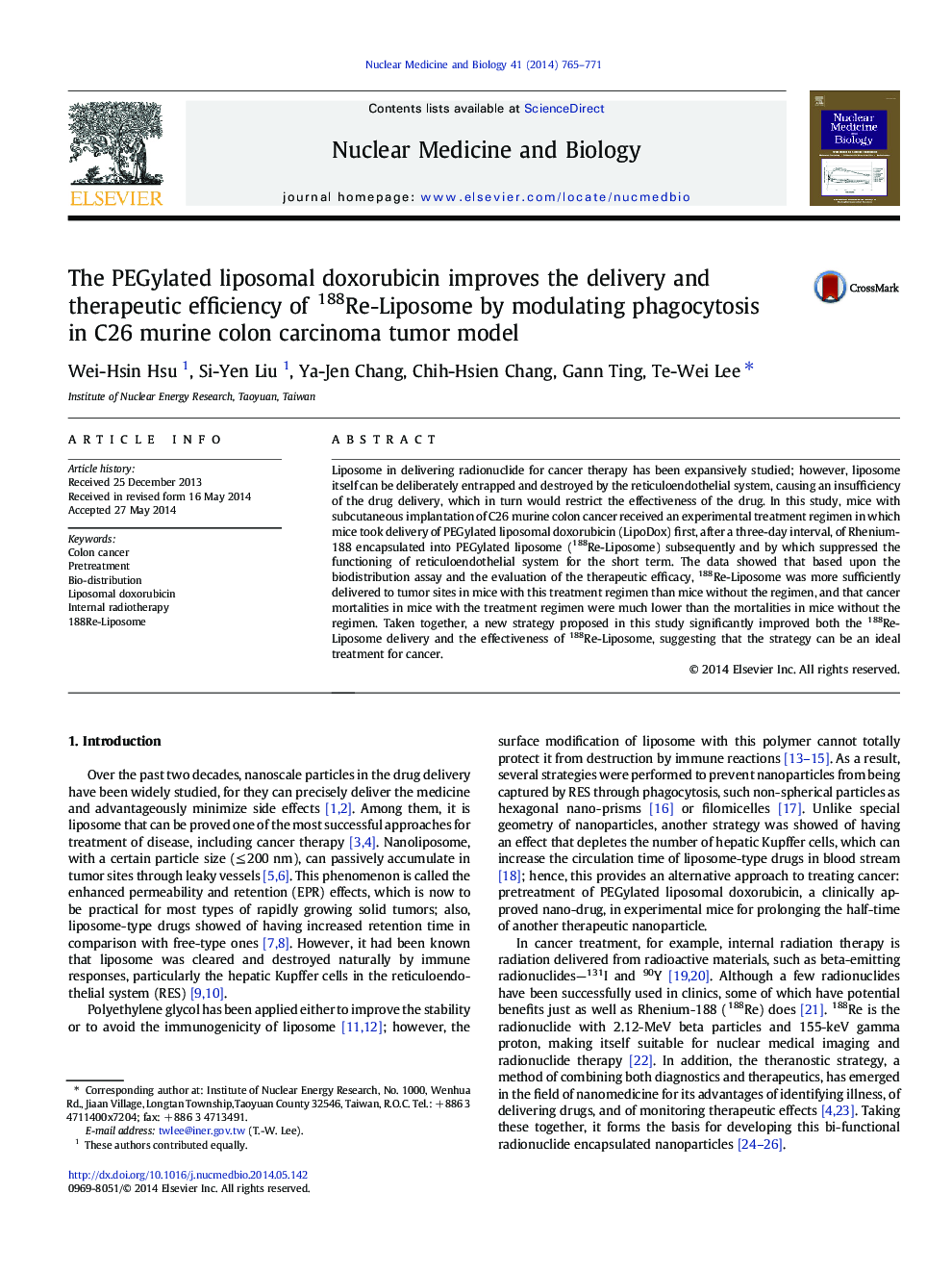| Article ID | Journal | Published Year | Pages | File Type |
|---|---|---|---|---|
| 2153481 | Nuclear Medicine and Biology | 2014 | 7 Pages |
Abstract
Liposome in delivering radionuclide for cancer therapy has been expansively studied; however, liposome itself can be deliberately entrapped and destroyed by the reticuloendothelial system, causing an insufficiency of the drug delivery, which in turn would restrict the effectiveness of the drug. In this study, mice with subcutaneous implantation of C26 murine colon cancer received an experimental treatment regimen in which mice took delivery of PEGylated liposomal doxorubicin (LipoDox) first, after a three-day interval, of Rhenium-188 encapsulated into PEGylated liposome (188Re-Liposome) subsequently and by which suppressed the functioning of reticuloendothelial system for the short term. The data showed that based upon the biodistribution assay and the evaluation of the therapeutic efficacy, 188Re-Liposome was more sufficiently delivered to tumor sites in mice with this treatment regimen than mice without the regimen, and that cancer mortalities in mice with the treatment regimen were much lower than the mortalities in mice without the regimen. Taken together, a new strategy proposed in this study significantly improved both the 188Re-Liposome delivery and the effectiveness of 188Re-Liposome, suggesting that the strategy can be an ideal treatment for cancer.
Related Topics
Life Sciences
Biochemistry, Genetics and Molecular Biology
Cancer Research
Authors
Wei-Hsin Hsu, Si-Yen Liu, Ya-Jen Chang, Chih-Hsien Chang, Gann Ting, Te-Wei Lee,
